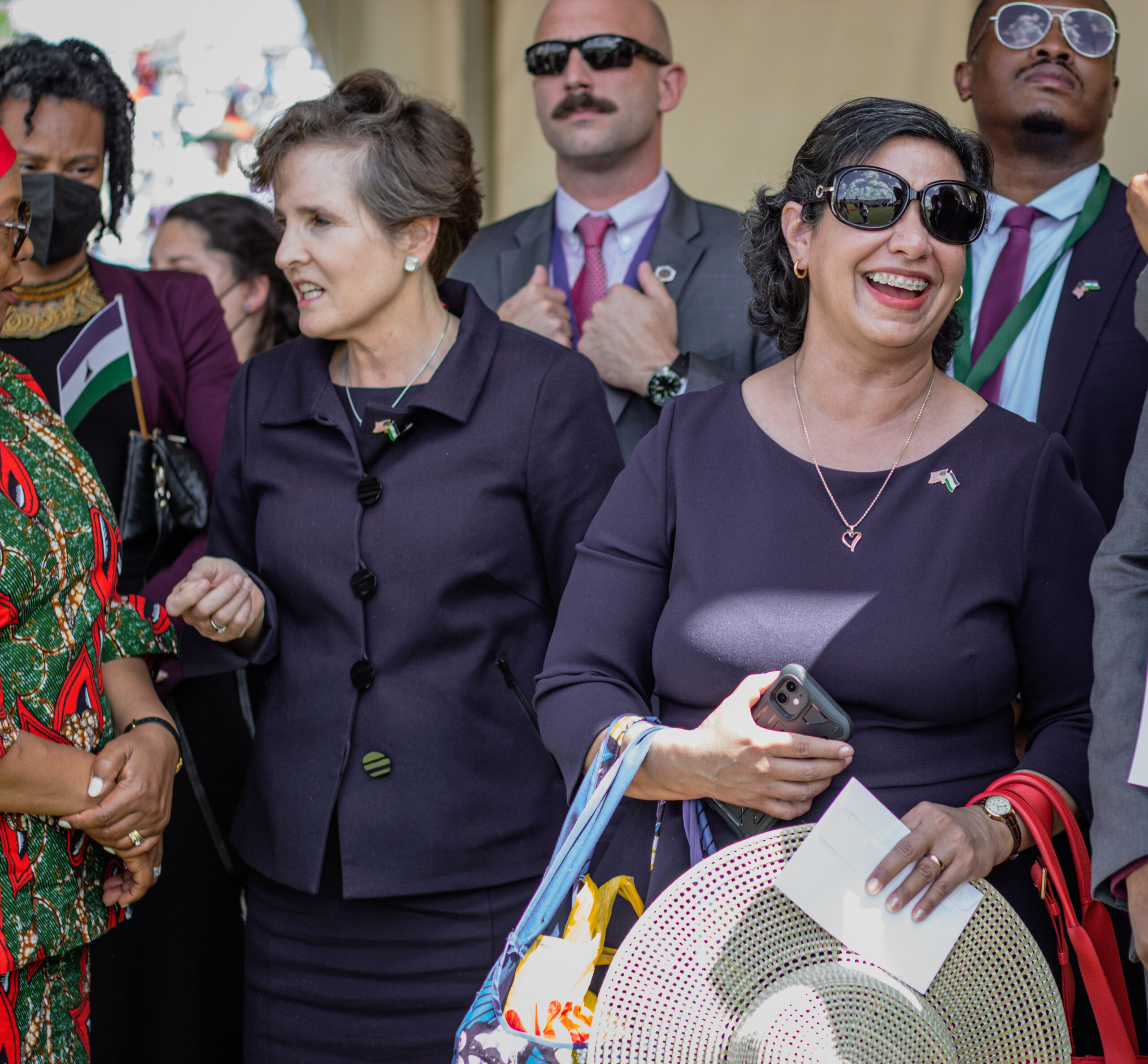Ntsoaki Motaung
Lesotho runs the risk of losing its eligibility to the African Growth and Opportunities Act (AGOA) as well as Compact 2 of the Millennium Challenge Account (MCA) if human rights violations are not addressed.
This was revealed by the Principal Secretary (PS) of the Ministry of Labour and Employment Emanuel Lesoma at a workshop that was organized by the International Organization for Migration (IOM).
Lesoma invited everyone to note that the country has been given a very tight deadline within which to make meaningful progress in addressing all observations made in so far as addressing human rights violations such as the rampant scourge of human trafficking.
As we are all aware, losing AGOA only can impact on more than 40, 000 jobs that factory workers are currently dependent on, including their families. On one hand, we must acknowledge great strides Lesotho has accomplished through compact II support in improving the horticulture sector, strengthening democratic institutions as well as public health systems, he said.
The workshop was aimed to equip Labour Inspectors with knowledge on basic concepts of Trafficking in Persons (TIP), identification and referral of Victims of Trafficking, as well as tools and guidelines which will enhance the regulation of recruitment agencies and individuals who may be potential traffickers.
The PS stated that the knowledge gained from the workshop will enhance the Ministry of Labour and Employments ability to foster fair and decent labour recruitment and in turn curb human trafficking.
To mark the landscape on the efforts of the Ministry in this matter, the Government of Lesotho has ratified the International Labour Organisation (ILO) Worst Forms of Child Labour Convention No.182, ILO Convention No.105 on Abolition of Forced Labour as well Protocol to Forced Labour Convention No.29, all of which are aimed at prohibition and elimination of worst forms of child labour and trafficking in persons for purposes of forced labour and domestic servitude,†he said.
He indicated that the workshop comes at an opportune time when the Ministry of Labour and Employment is finalizing the labour law review exercise and has been able to garner the financial support of the Ministry of Finance to conduct a rapid assessment on the worst forms of child labour.
Coupled with the knowledge gained from this workshop the Ministry will be in a better position to develop the second phase of National Action Plan on the elimination of child labour thereby addressing all comments emanating from different international bodies on TIP and worst forms of child labour.
The importance of this workshop cannot be over emphasized as Lesotho is currently positioned on the second tier watch list according to TDA report published by the U.S. Department of Labor (DOL) in its 19thedition of annual findings on the worst forms of child labour. Furthermore, Lesotho has been placed on tier III in as far as human trafficking is concerned due to inadequate prevention measures and prosecution of human trafficking cases. Human trafficking like child labour is one of the worst violations of human rights, he said.
Meanwhile, the Facilitator Eriko Nishimura indicated that the US government is providing financial support to the project titled Supporting Lesotho in Trafficking in Persons (TIP) Prevention and Protection.
The International Organisation for Migration, known as the United Nations Migration Agency, is implementing the project for a period of two years, she said.
She stated that the project aims to achieve two objectives, to strengthen the TIP response including the identification, protection and referral of potential victims of trafficking at district and national level.
IOM will implement the project with the Ministry of Home Affairs as a key counterpart and will collaborate with other Government ministries and NGOs active in the fight against trafficking in persons and IOM will ensure greater engagement with local government and communities to realise the projects objective, she said.
Summary
- He indicated that the workshop comes at an opportune time when the Ministry of Labour and Employment is finalizing the labour law review exercise and has been able to garner the financial support of the Ministry of Finance to conduct a rapid assessment on the worst forms of child labour.
- Coupled with the knowledge gained from this workshop the Ministry will be in a better position to develop the second phase of National Action Plan on the elimination of child labour thereby addressing all comments emanating from different international bodies on TIP and worst forms of child labour.
- IOM will implement the project with the Ministry of Home Affairs as a key counterpart and will collaborate with other Government ministries and NGOs active in the fight against trafficking in persons and IOM will ensure greater engagement with local government and communities to realise the projects objective, she said.

Your Trusted Source for News and Insights in Lesotho!
At Newsday Media, we are passionate about delivering accurate, timely, and engaging news and multimedia content to our diverse audience. Founded with the vision of revolutionizing the media landscape in Lesotho, we have grown into a leading hybrid media company that blends traditional journalism with innovative digital platforms.










